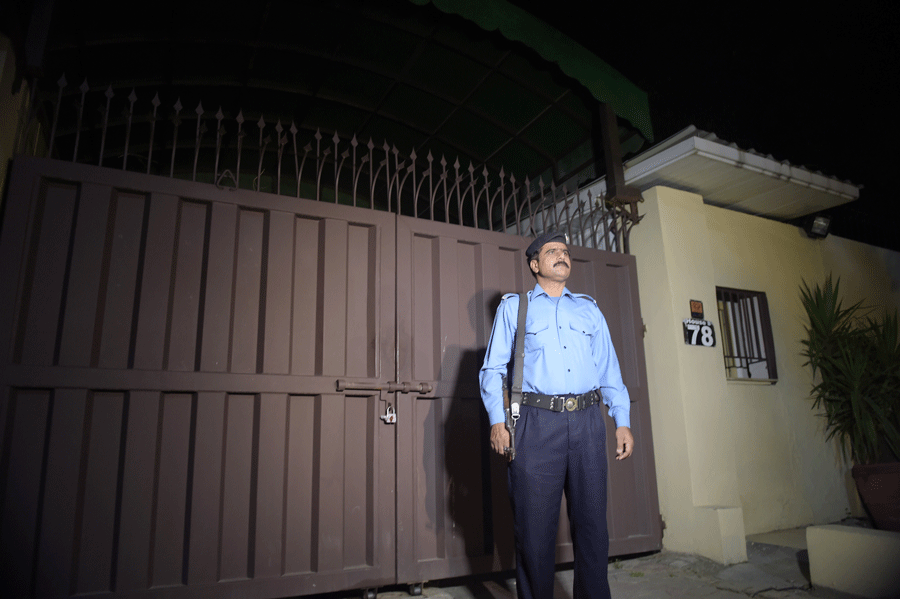NGO Expulsion
By K. K. Shahid | Newsbeat National | Published 7 years ago

On October 28, following a federal cabinet decision taken at the end of September, the Al-Rahmah Welfare Trust Organisation was banned in Pakistan, owing to its reported involvement in illicit activities.
The decision came after the cabinet had been warned about Al-Rahmah Welfare, an International Non-Governmental Organisation (INGO) working to support orphans, widows and the economically deprived in countries like Afghanistan, Syria and Pakistan, by the Interior Division
The announcement came weeks after 18 INGOs were asked to shut operations in Pakistan. Most of these were engaged in human rights efforts, including ActionAid, which addresses education and poverty alleviation.
ActionAid’s Pakistan Director, Abdul Khaliq, said that no reason was provided for the expulsion orders that were given by the Interior Ministry. The letter issued to these groups does not allow for an appeal, and maintains that the INGOs can reapply for registration after six months.
While the latest INGO expulsion order has come under the Pakistan Tehrik-e-Insaf (PTI) government, its predecessor, the Pakistan Muslim League-Nawaz (PML-N) government, had given similar orders to many INGOs as well.
The latest among these came in December 2017 when 27 such organisations were asked to wrap up their operations and leave. The then minister for the interior, Talal Chaudhry, maintained that the banned INGOs “were doing work… which is beyond their mandate and for which they have no legal justification.”
The US and the European Union, among other western nations, conveyed their concerns to Prime Minister Imran Khan over the crackdown against the INGOs. “We are writing to express serious concerns with respect to recent developments,” said the letter, which was signed by various countries with regard to the state’s actions against aid groups. “Restriction on civil society risks affecting Pakistan’s international reputation as a genuine partner in human development and on undermining the confidence of the international donor and business community,” it added.
On the flip side, the Russian government has officially stepped forward in support of Pakistan’s action against the INGOs. “The banning of US and European INGOs by Pakistan is its internal matter,” said Russian Foreign Ministry spokesperson, Maria Zakharova, in a press conference. She added, “I can confirm that unfortunately, in Russia in the recent past, several US/Europe-based INGOs, along with a number of media houses, were not undertaking the activities officially mandated to them.”
Even so, there are concerns raised by rights groups and opposition parties regarding the method in which the action is being carried out by the Pakistan government. The most commonly cited concern is the lack of explanation that the government offers the INGOs. In this regard, the interior secretary has been summoned by the Senate Standing Committee on Human Rights.
“The ban on INGOs will prevent development, relief and aid work – directly impacting the poor as a result,” says Pakistan People’s Party (PPP) leader Mustafa Nawaz Khokhar, who chairs the human rights committee. “Thousands of Pakistanis working in the sector will lose their employment, creating further problems.”
Even so, insiders within the Interior Ministry reveal that the government is unlikely to change its position or policy with regards to the INGOs. The primary reason cited for this is that the government had not formulated the policy in the first place. “The aliens [reference to the military establishment] are the ones who form the policies on the INGOs and the intelligence agencies are the ones that identify which groups need to be banned and issue orders in this regard,” said a well-placed source. “In this regard, there is always an intelligence guy working in the interior ministry [in a civilian capacity] who keeps an eye on the ministry’s day-to-day working and reports back to his bosses.”
That the military establishment is calling the shots in the INGOs cases has been cited by many human rights groups. The case of Shakil Afridi, the doctor who helped the Central Intelligence Agency (CIA) track down Osama bin Laden in Abbottabad, has triggered the military’s paranoia as far as foreign involvement in Pakistan is concerned. While Afridi remains in jail in Sahiwal, Save the Children, a charity group that claims it was inadvertently involved in the Bin Laden raid, was shut down in 2015.
Pakistan Civil Society Forum (PCSF) convener and Founding Director of South Asia Partnership Pakistan, Mohammad Tahseen, maintains that while the military establishment is involved in taking action against INGOs, the civilian leadership has not done anything to safeguard the groups. “Let’s not forget that the clampdown was initiated under [former interior minister] Chaudhry Nisar Ali Khan. And right now, if anyone tries to approach [human rights minister] Shireen Mazari, she won’t have more than five minutes to address the breaches of human rights and actions against groups that are working on human rights,” he said.
Tahseen concedes that there are international groups that are, indeed, working at the behest of foreign agencies. “However, this does not mean that all INGOs should be targeted, and that too without any reason being provided for action against them,” he says. “There should be strict action against those groups that are found guilty, and where there is evidence to support the claims. Otherwise, not only is their positive work jeopardised, but hundreds of thousands of Pakistanis affiliated with the charities are also being rendered unemployed.”
“Considering that the intelligence agencies don’t have a clearly laid-out policy, the mechanism in which the actions are carried out might not change much,” says Tehseen, “What I definitely don’t see happening, is the policy on the INGOs improving any time soon.” he maintained.”


